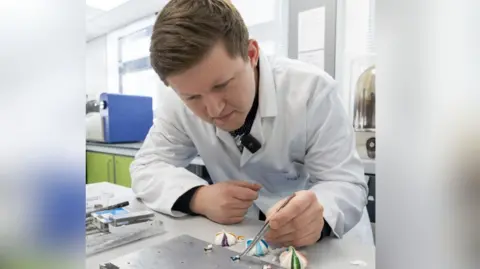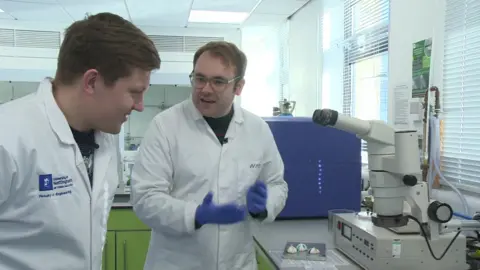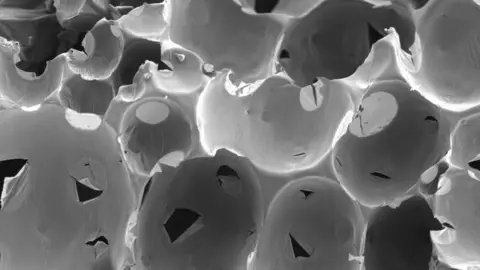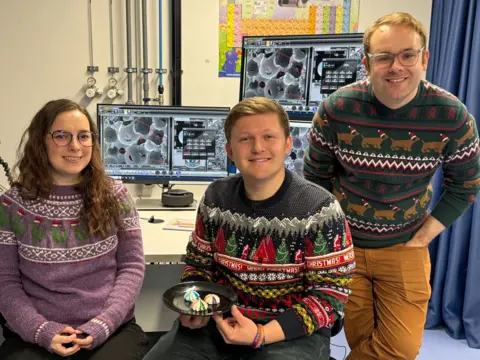Bake Off finalist combines chemistry with cooking
 University of Nottingham
University of NottinghamGreat British Bake Off 2023 finalist Dr Josh Smalley has two passions.
One, not surprisingly, is baking, and the other is science - he is a chemist by trade at the University of Leicester.
After appearing in series 14 of Bake Off, Mr Smalley has been using his culinary creativity to "inspire and educate the next generation" in science.
This brought him to the University of Nottingham to join scientists from the Nanoscale and Microscale Research Centre (nmRC) to find out more about nanoscience and the role it can play in baking.

Mr Smalley got a unique close-up of his festive bakes using a powerful microscope to examine the structure of his Christmas cake and desserts, and see the difference between vegan and non-vegan sweet treats.
Images of Mr Smalley's bakes were created using a technique called Scanning Electron Microscopy (SEM).
It works by using a beam of negatively charged particles, called electrons, to scan the surface of the material, creating high-resolution images that show details as small as a few nanometres.
One nanometre is approximately 100,000 times smaller than the width of a single human hair.
Mr Smalley said: "I think the benefits of learning about this is just seeing how, when we're using substitutes in some of our baking, can we still get the same effect at the end? Because we still want the same experience as a consumer."
 University of Nottingham
University of NottinghamEach tiny piece of meringue was coated with gold particles to make it conductive for the electrons.
Luke Norman, knowledge exchange fellow at the University of Nottingham, says the results "completely surprised" him with the vegan meringue "completely different in structure".
This kind of innovative science, he says, helps us all to understand the world around us because "every single property of a material comes right to that atomic level".
He added: "Everyone knows about baking and knows what things should taste like and look like, but things look so much different at that microscopic level."
Mr Smalley is now a science communication champion at the University of Leicester, helping to educate about chemistry through baking.
"I'm really hoping to inspire the next generation and just open their eyes to science in the real world and see how important science is in everything we do," he adds.

Follow BBC Nottingham on Facebook, on X, or on Instagram. Send your story ideas to [email protected] or via WhatsApp on 0808 100 2210.
